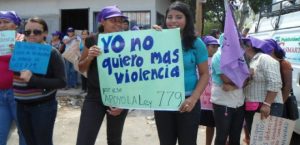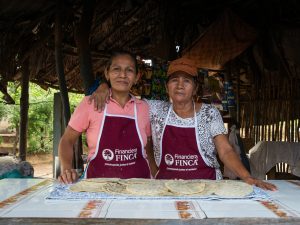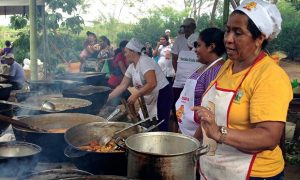One thing that has become especially evident to me in observing my peers presentations is that no issues or topic exists independently from another. Each topic presented on, whether it was maternal health, agricultural sustainability, or microfinance, all directly impact the others.
In observing said presentations, and in doing my personal research on maternal health and Zika Virus, I noticed that every issue, from environmental sustainability, economic development, health access, and socioeconomic and gender disparities were very much interdependent. They influenced one another and interacted with the fluctuating conditions of the other issues in a variety of ways.
And although every topic presented on is relevant to my topic or research, I specifically want to reflect on the following two presentations:
Microfinance:
According to Finca and the statistics discussed in Henry and Sawyer’s presentation, 81% of the population does not have a proper bank account and 41% live below the poverty line. Currently, most people who take out a Finca loan are already micro-entrepreneurs, and with the loans permitting them to make their businesses more profitable – to purchase wholesale rather than retail, for instance.
But microfinance has its critics, including myself. As Henry and Sawyer mentioned, Finca has been in Nicaragua since 1992, and although it is clearly making a difference in people’s lives on a small scale, the underlying obstacles of poverty in Nicaragua are barely being addressed at all. In recent years, academic  studies and scholars alike have further come to the conclusion that there is no evidence that microfinance has had any positive impact on world poverty.
studies and scholars alike have further come to the conclusion that there is no evidence that microfinance has had any positive impact on world poverty.
I am a great supporter of financial empowerment and recognize the significant sphere of influence such empowerment can have on issues beyond economics (such as health and education), especially for women. I am especially supportive of efforts and projects that empower women. However, the case study presented in this presentation brought concern regarding the harmful power dynamic and overarching disparities between the Global North and Global South. I fear that relying on donations and support from the Global North for this band-aid solution will only exacerbate the inequalities and dependence of the global South in the long-term.
Women’s rights and empowerment:
As articulately presented by Morgan, Roshni, and Katie, very significant advances have indeed been recorded in the area of women’s human rights and the treatment of violence against women in Nicaragua (and by international law) in the last few decades. The international community (Nicaragua more or less included) has moved from a position of considering violence against women to be a private matter to a position where it is tackled as a public concern. Perhaps more significantly, the merely protective, humanitarian approach of earlier times has been replaced by a rights-based approach. International norms no longer treat violence against women as merely a criminal law matter that needs to be dealt with by penal sanctions, and neither is violence against women simply regarded as a women’s rights issue that only concerns women’s rights defenders.
There is no doubt that in the global progress we have witnessed, CEDAW has played a significant role. This piece of international law, considered by many to be ‘the global Bill of Women’s Human Rights,’ encapsulates universal standards for women’s human rights. It aims at the realization of both de jure and de facto equality between women and men as the ultimate standard. It has a broad conception of gender equality obliging state parties to do away with both ‘direct and indirect discrimination’ as well as ‘discrimination of purpose’ and ‘discrimination of effect’ against women. To put it differently, it demands not only legal and formal equality, but also substantive equality.
The intersection between the topics of economics, women’s rights, and maternal health is dramatic and complex. There is a strong and positive link between health and education. Educated women are more likely to be empowered, access healthcare services and are more productive and can provide for their families economically. Women’s rights (in theory) ensure greater protection and access to support (including medical and economic counseling). One cannot prosper economically if they lack access to financial stability or suffer poor health. Each of these topics are interconnected in countless ways, many which go beyond the usual suspects and in varying degrees. In approaching development from either an observational or action-oriented perspective, we cannot overlook such complex relationships and must strive for more holistic approaches.




